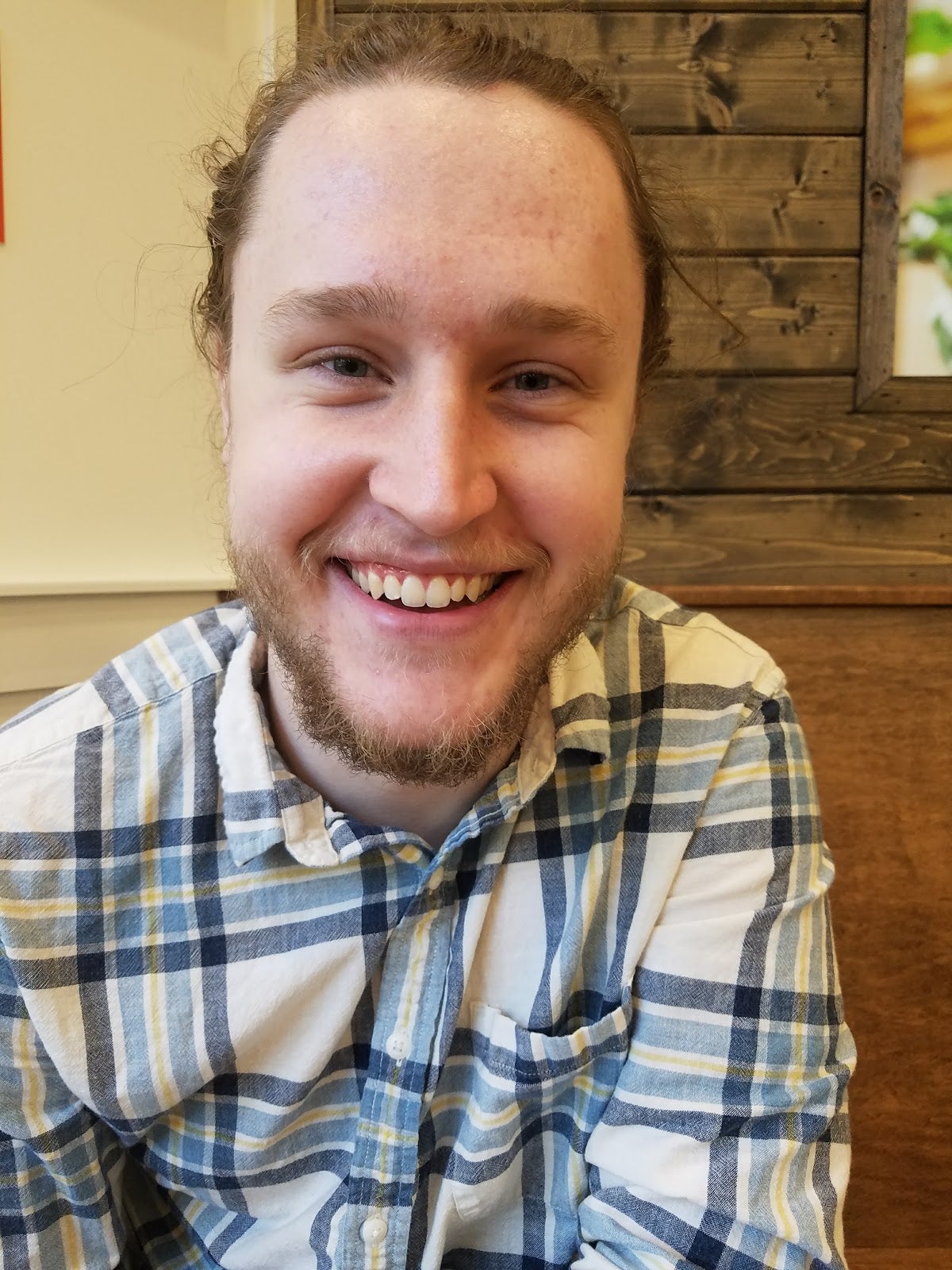
To celebrate our Spring 2020 linguistics graduates, we are featuring their story on our webpage. We hope you enjoy learning about our amazing soon-to-be alumni!
We asked Ethan a few questions. Here are his responses:
What made you decide to study linguistics?
I switched my major to linguistics near the end of my sophomore year, actually! I had been a computer science major and while I love math, coding just wasn’t what I wanted to do for the rest of my life. So, starting sophomore year, I decided to double major in history and computer science, adding the history major so I could take classes I enjoyed. A huge part of this first shift was that history called for language electives, and for the first time in my life, I just felt drawn to taking a language class. So I took Japanese sophomore year, fell in love with it and languages, and realized that I wanted to keep studying how languages worked and maybe get better at learning languages. Turns out I loved linguistics even more than I thought I ever could and swapped my computer science major for linguistics. Changing to a double major in history and linguistics was the best choice I could’ve possibly made for myself.
What is your favorite part about studying linguistics?
As I said, I love math, and history doesn’t give a whole lot of math. And truth be told, I just like problem solving. So, morphosyntax quickly became one of my favorite components of linguistics, because of the variable nature of it, and how like with some upper level math, there is more than one write answer (when doing a problem set). I also just love language, through and through. I’m graduating with pieces of (sometimes random) knowledge of languages ranging from Japanese to Polish to Arapaho to Basque, and I love that.
What have you learned about yourself through your college experience?
What haven’t I learned? Honestly, I came to college as a chance to make my life into something that I loved and looked forward to. I came to give myself a life with a future I wanted. I’ve figured out what kind of jobs I like (I need to work with people), I found myself socially and met the best people I’ve ever met in my entire life at the World Language Resource Center (WLRC), and I found a passion for both linguistics and history. I did not know linguistics existed until that sophomore year transition, and now I adore it.
Which was your favorite class?
My favorite linguistics class would easily be the Native North American Languages with Tim Thornes. I jumped into it feet-first with a decent understanding of morphosyntax, but I hadn’t taken the course yet. So, Tim’s class was a true trial-by-fire as we all got caught up and devoted serious time to familiarizing ourselves with a Native North American language of our choice. I got to pick a language that meant something to me and ran with it, just as everyone else did. The in-class discussions were fantastic, seeing my classmates learn highly complex grammatical structures when at the beginning of the semester, case marking was a difficult subject. We all learned so much and in the end, were able to share a remarkable experience.
What do you plan to do after graduation?
For the last year, I’ve been looking at either crisis management or peacekeeping. I’m considering applying to a Fulbright to Finland to get a peacekeeping master’s. However, I’ve also recently considered journalism, again focusing more on situations where I’m working closely with people from other language communities or cultures. I’ve also considered a master’s in TESOL because of how much experience I’ve gained with language education through linguistics and my job on campus, but this is the least likely path for me, I think.
What advice do you have for linguistics students?
Even the most difficult topics can get more digestible with more exposure and practice. Don’t get discouraged when you hit those comprehension roadblocks, you will overcome them. Some things took me at least a year to wrap my head around, and some haven’t quite clicked even still. However, the linguistics professors at BSU are absolutely phenomenal and will help with any confusion you will ever run into. On top of that, the linguistics students are also so incredibly helpful. Use your classmates and your professors, because everybody is willing to help everybody else!
How has linguistics changed the way you interact with others, if at all?
I’ve gained so much empathy from linguistics that I never would’ve thought possible. I’ve learned why dialects and languages are truly equals, and why speaking a certain way is in no way a lesser form of speaking. I’ve also learned enough about the language acquisition process that when a language learner struggles with English, I never feel any judgement towards them. Because of linguistics, I can see how hard they are trying and feel absolutely capable of holding a conversation with them, regardless of their language proficiency. I would want them to do the same for me, if roles were reversed.